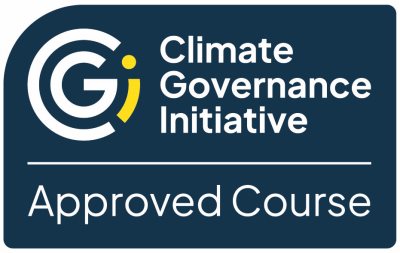Board Oversight of Climate Change
Effective climate change oversight does not involve a straight path or simple solution. Understand how to frame the risks and opportunities and embed a viable adaptation strategy.
The need for climate competent directors is no longer around the corner. It is an urgent reality.
Climate change has become an essential topic of discussion for many boards as investors, regulators, and other stakeholders challenge organizations to take responsibility by adopting an integrated, strategic approach to addressing the climate imperative.
As long-term stewards, directors must understand the impacts of climate change on their organizations. This includes consideration of the physical and transition risks, strategic risks and opportunities under different scenarios, oversight of internal monitoring and external reporting, and more. The consequences of inaction must not be underestimated.
This course is designed to build directors’ climate competency, by equipping directors with the knowledge, tools, and forward-thinking strategies to enhance their oversight of climate related risks, improve boardroom discussions on climate transition and increase their organizations long term competitiveness.
ICD.Ds: $2,850 plus applicable taxes
ICD Members: $3,150 plus applicable taxes
Non-Members: $3,600 plus applicable taxes
Non-Members who apply for admission into any short course will receive a one-year ICD membership (value of $450).
Refund Policy
CGI APPROVED

Current Offering
| City | Course | Application Deadline | Deadline Time | Module I | Module II | Module III | Course Time |
|---|---|---|---|---|---|---|---|
| Online | CCC 011 | March 13, 2026 | 4:30 PM ET | April 1, 2026 | April 15, 2026 | April 29, 2026 | 10:00 AM to 2:00 PM ET |
More about the course
Faculty
Participants will benefit from the collective knowledge, insights and guidance of a best-in-class teaching team with diverse experience across a range of climate governance facets:

Sarah Keyes
National Academic Director and Lead Instructor
Partner, Sustainability Strategy & Transformation at PwC Canada

Miranda Hubbs
Director-in-Residence
Director: Nutrien, Imperial Oil and PSP Investments, Canadian Red Cross; Chair, Canadian Investment Regulatory Organization

Sue MacKenzie
Director-in-Residence
Corporate Director: Precision Drilling Corporation, MEG Energy Corporation, Teine Energy and Shock Trauma Air Rescue Service (STARS).

Gale Rubenstein
Director-in-Residence
Partner Goodmans LLP and Chair of the Board of Trustees University Pension Plan Ontario

Michelle Tan
Director-in-Residence
Partner, Hugessen Consulting.
Co-host
